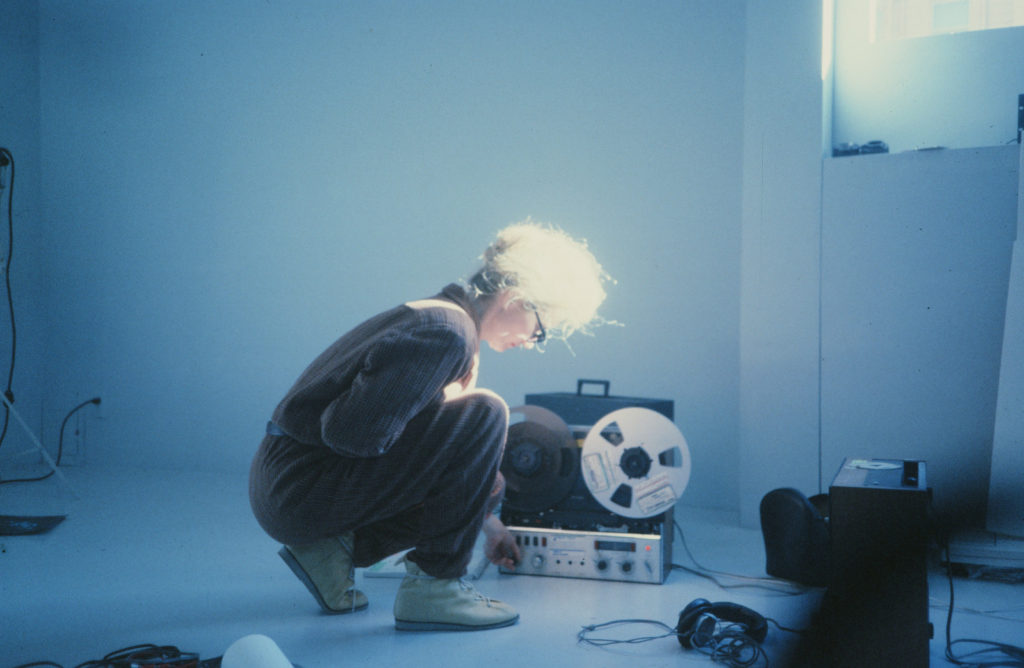Review: Sisters With Transistors (2020)

Laurie Anderson’s voice runs like a soothingly spooky melodic motif through Sisters With Transistors, director Lisa Rovner’s superbly titled documentary about pioneering female figures in 20th century electronic music. The London-based Rovner’s engaging feature debut seeks to redress the testosterone-heavy history of machine-made symphonies by celebrating underrated, overlooked composers including Delia Derbyshire, Pauline Oliveros and Laurie Spiegel. These women, she argues, were inescapably feminist heroines, challenging patriarchal power structures by “breaking through the silence with beautiful noise.”
Punctuating a rich spread of rare archive video and audio with freshly shot footage, this densely populated story is a well-crafted history lesson layered with voices from the musical past and present. Besides Anderson’s poetic narration and vintage interview clips, Rovner also includes patchwork commentary from a largely female background chorus of contemporary composers and sound artists including Holly Herndon, Kim Gordon, Ramona Gonzalez and Jean-Michel Jarre. Previously in the official selection of SXSW and of CPH:DOX, and to be screened as part of Sheffield Doc|Fest in Autumn, Sisters With Transistors should appeal to anyone with even a casual interest in electronic music and cultural gender politics.
Rovner opens with an amusing clip of a young woman dancing to the music inside her head at an outdoor rave festival in Britain in 1993. This comic vignette feels a little incongruous, given that Sisters With Transistors is chiefly concerned with mid-century electronic composers from the avant-garde fringes, not with the more commercial pop and dance music subcultures they helped to inspire. Even so, it makes sense to win over your audience early with a funny joke.
The film’s official time-frame begins in the late 1920s with Clara Rockmore, the Lithuania-born concert violinist who helped develop and popularise the Theremin, one of the earliest electronic instruments. But the great leap forward in female composers came with World War II, which brought major technological advances as well as drawing many more women into academia, science and industry.

Liberated from traditionally male-dominated orchestras and institutions by the invention of tape recorders, legendary British electronic innovators Daphne Oram and Delia Derbyshire found a safe space for their DIY audio wizardry while working for the BBC’s cutting-edge sound effects laboratory, the Radiophonic Workshop. In 1963, Derbyshire famously co-created the theme music for the BBC’s long-running TV sci-fi drama Doctor Who, which is still used today. Meanwhile in France, Eliane Radigue began experimenting with musique concrete and tape feedback. She called her early pieces “sonic propositions” because then, as she tells Rovner, “I did not have to explain whether it was music or not.”
But Sisters With Transistors is primarily an American story. In the 1950s and 1960s, US composers like Bebe Barron, Pauline Oliveros, Wendy Carlos and Maryanne Amacher began pushing the limits of electronic music using tape loops, vacuum tubes, semi-conductors, “deep listening” and other psychoacoustic methods. Their revolutionary work struck a wider political chord with the emerging counterculture, feminism and queer politics. Rovner concludes this selective history with analogue synthesizer icon Suzanne Ciani, a significant player in film and TV music in the 1970s and 1980s, and Laurie Spiegel, inventor of the first computerised composition programme, Music Mouse.
In her press notes, Rovner admits she is telling a subjective story here. A more definitive documentary might have included chapters on Else Marie Pade, for example, or Annette Peacock, or Yoko Ono, or Laurie Anderson herself. The film’s lack of racial diversity is also striking, but arguably unavoidable, since early electronic music was mostly created under specific laboratory conditions by white Americans and Europeans. If Rovner had included more recent developments in synth-pop, techno and laptop electronica, the cultural mix would undoubtedly be richer. But of course that would require a different film with a broader focus. On its own terms, Sisters With Transistors is still highly enjoyable, a fascinating alternative history lesson and a rich audio-visual mixtape.
Original title: Sisters With Transistors
Year: 2020Runtime: 90′
Country: UK
Language: English
Director: Lisa Rovner
Produced by: Anna Lena Vaney, Marcus Werner Hed
Editing by: Michael Aaglund, Kara Blake
Production companies: Ana Lena Films
















